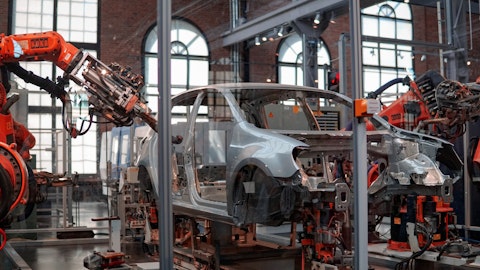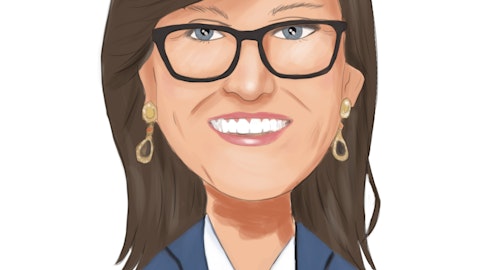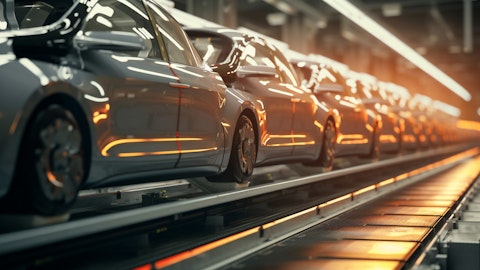Craig Irwin: Excellent. And last question, if I may, is actually a pretty basic question. FMVSS, the Federal Motor Vehicle Safety Standard certifications, is this a gating factor that is necessary for commercial deliveries? How long did it take you to achieve FMVSS with your certification partner? If someone was to start today, is it logical for them to take a similar amount of time with a different technology or a competing technology? If you could help investors understand a little bit better the significance of FMVSS and how this is such a big accomplishment.
Daniel Barel: Yes, of course. I mean it is a huge accomplishment. First and foremost, because we were the first — we still are the only one in the world to be able to certify and put on the road a fully by-wire vehicle. There are some vehicles out there that are partially by-wire, mainly steer-by-wire, like the Tesla Cybertruck, right? And we see more and more OEMs trying to adopt more and more by-wire technology slowly because it’s a very heavy lifting to do by-wire, especially when you do a full by-wire, therefore, redundancies and control and stability and maturity of the software is critical. So definitely, we see more and more players out there like Tesla, like Lexus and others that offer partially by-wire system mainly around steering but we are the only one that have been able to do a full by-wire vehicle.
And it took us years, years of testing and validating the technology. And it’s not just the hardware mainly, as I’m sure people understand, it’s mainly around software and running algorithm and AI and others to ensure that we have all the abilities and the machine learning needed to run in real time our by-wire capabilities with all the redundancies. And as you fairly mentioned, one, we decided to take it to the market, it is — you can’t put a vehicle in the U.S. without FMVSS cert and EPA by the way but the FMVSS cert is a critical one. And we decided to go and pursue this with a third party that helped us to ensure the validation process correctly and run those tests in a manner that is as perfect as possible, right, because being the first one, we believe that it is critical to ensure a very high level of performance.
Should anybody else try to do it? I mean I’m not sure that the phrase should, I mean, everybody should. And I think they are all trying. But I think currently, with FMVSS, we opened a gap in sort of magnitude with everybody else in the industry, being able to do that. And keep in mind that as more of our trucks are on the road, the more data we collect from our by-wire system and that allows us to improve it even further. And one should assume that everybody now saw the first version of our corners and our by-wire technology. But we’ve been working on by-wire for 10 years now. So one should assume there is far more coming in the future.
Craig Irwin: Excellent. I’ll take the rest of my questions offline. Congratulations on the progress.
Daniel Barel: Thank you so much.
Operator: There seems to be no further questions. I would like to hand back to Daniel Barel for closing remarks.
Daniel Barel: So I want to thank everybody for taking the time and joining us today. I want to thank our investors for their strong, great support. And I want to say thank you again for everybody on team REE for a phenomenal year, overcoming so many challenges and driving strong results. Thank you, everybody and stay safe.
Operator: This concludes today’s conference call. Thank you for participating. You may now disconnect.
Follow Ree Automotive Ltd. (NASDAQ:REE)
Follow Ree Automotive Ltd. (NASDAQ:REE)
Receive real-time insider trading and news alerts




